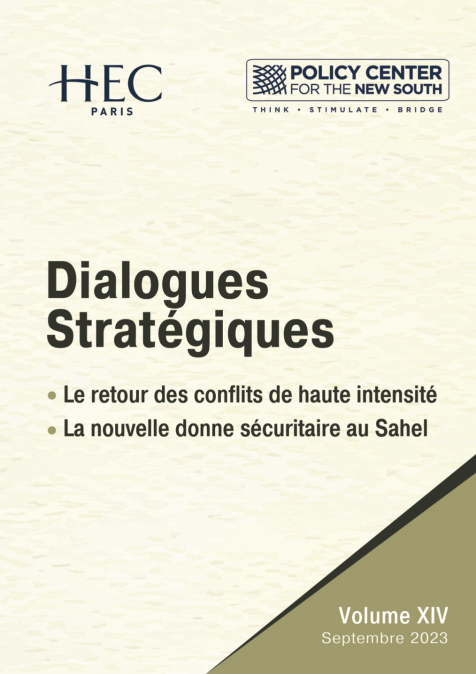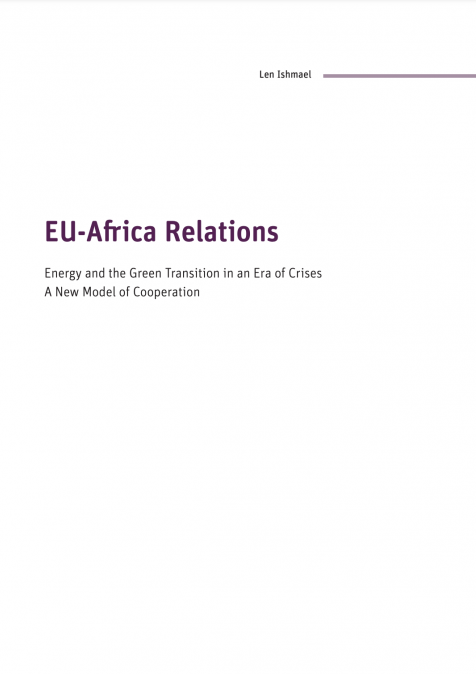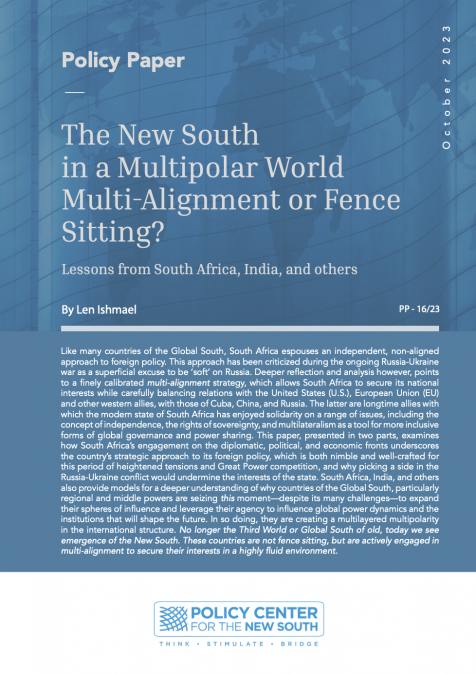Africafé est une émission du Policy Center for the New South qui décrypte l’actualité des organisations africaines et de l’Afrique. A travers de courtes interviews, l’émission tente de proposer d’aborder de manière pédagogique les enjeux des organisations africaines et l’actualité du continent.
Dans cette épisode Fatim Zahra mengoub évoque les enjeux de la sécurité alimentaire en Afrique et la place de l’agriculture et des pratiques agricoles novatrices notamment en matière de consommation d’eau dans l’atteinte des objectifs de sécurité alimentaire du continent.
Speakers

Afaf Zarkik
Senior Economist
Afaf Zarkik is an economist at the Policy Center for the New South and a graduate in energy strategies from Ecole des Mines de Paris. Among her areas of research and reflection: energy commodities monitoring and energy transition and sustainable development policies analysis. Before joining the Policy Center, A. Zarkik was an analyst in oil and gas mergers and acquisitions, a venture capital analyst in a cleantech fund, and a senior analyst in asset management.
Afaf Zarkik est économiste au Policy Center for the New South et ingénieur titulaire d'un Master en stratégies énergétiques de l'École des Mines de Paris. Parmi ses axes de recherche et de réflexion : la veille des marchés des matières premières énergétiques et l'analyse des politiques de transition énergétique et de ...

Fatima Ezzahra Mengoub
Senior Economist
Fatima Ezzahra Mengoub, researcher, development specialist, and policy analyst, is a Senior Economist at the Policy Center for the New South. She holds a PhD. in Economics applied to agriculture and an engineering degree in agricultural economics both from the Hassan II Institute of Agronomy and Veterinary Sciences. Her research addresses agricultural and rural development including agricultural growth analysis, economic structural change, inter and intra-regional agricultural trade, water management, and food security. She has also taught macroeconomics, microeconomics, and decision-making courses at the Hassan II Institute of Agronomy and Veterinary Sciences (IAV), the School of Governance and Economics (EGE), and the Faculty of Governance, Economics, and Social Sciences (FG ...









